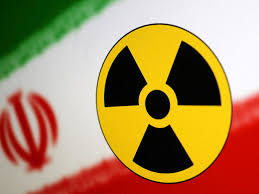
Breaking News
 The Roger Ver Lawfare Case You've Never Heard of and Why Trump Needs to End It
The Roger Ver Lawfare Case You've Never Heard of and Why Trump Needs to End It
 Deportations Have Only Just Begun! Border Czar Homan 'Building Teams' To Ramp Up Operations.
Deportations Have Only Just Begun! Border Czar Homan 'Building Teams' To Ramp Up Operations.
 VIDEO: Kevin O' Leary and Alex Jones Go Off on the 'War on Small Business' Slipped Withi
VIDEO: Kevin O' Leary and Alex Jones Go Off on the 'War on Small Business' Slipped Withi
 First Ever: USDOJ Files Terrorism Charges Against Sinaloa Cartel Members
First Ever: USDOJ Files Terrorism Charges Against Sinaloa Cartel Members
Top Tech News
 Cab-less truck glider leaps autonomously between road and rail
Cab-less truck glider leaps autonomously between road and rail
 Can Tesla DOJO Chips Pass Nvidia GPUs?
Can Tesla DOJO Chips Pass Nvidia GPUs?
 Iron-fortified lumber could be a greener alternative to steel beams
Iron-fortified lumber could be a greener alternative to steel beams
 One man, 856 venom hits, and the path to a universal snakebite cure
One man, 856 venom hits, and the path to a universal snakebite cure
 Dr. McCullough reveals cancer-fighting drug Big Pharma hopes you never hear about…
Dr. McCullough reveals cancer-fighting drug Big Pharma hopes you never hear about…
 EXCLUSIVE: Raytheon Whistleblower Who Exposed The Neutrino Earthquake Weapon In Antarctica...
EXCLUSIVE: Raytheon Whistleblower Who Exposed The Neutrino Earthquake Weapon In Antarctica...
 Doctors Say Injecting Gold Into Eyeballs Could Restore Lost Vision
Doctors Say Injecting Gold Into Eyeballs Could Restore Lost Vision
 Dark Matter: An 86-lb, 800-hp EV motor by Koenigsegg
Dark Matter: An 86-lb, 800-hp EV motor by Koenigsegg
 Spacetop puts a massive multi-window workspace in front of your eyes
Spacetop puts a massive multi-window workspace in front of your eyes
White House Has Presented Iran With Written Nuke Deal Proposal In Huge First

In a huge first, the Trump White House has sent Iran a written proposal toward forging a new nuclear deal. White House envoy Steve Witkoff has led several rounds of talks, and Axios has revealed that the communication was issued to Tehran last Sunday.
"Iranian Foreign Minister Abbas Araghchi took the proposal back to Tehran for consultations with Supreme Leader Ali Khamenei, President Masoud Pezeshkian and other top officials," writes Axios.
It was the Iranian side which initiated the swap of written proposals first, as the talks which have been on since April went from 'indirect' to more 'direct':
During the third round of talks in late April, Araghchi gave Witkoff an updated document with Iranian ideas for a nuclear deal. This time, Witkoff took the document.
A U.S. team of experts studied it and sent the Iranians a list of questions and requests for clarification. The Iranians replied and added questions of their own, two sources said.
Meanwhile, Witkoff and his team prepared a U.S. proposal laying out the Trump administration's parameters for an Iranian civilian nuclear program and requirements for monitoring and verification, the sources said.
It appears that thus far both sides have received the other's written proposals positively, and that's what was driving President Trump's "olive branch" comments on Tuesday. He had stressed while speaking in Saudi Arabia that "this is not an offer that will last forever. The time is right now for them to choose."
President Trump followed up on Thursday by saying from Qatar, "We're in very serious negotiations with Iran for long-term peace," according to AFP.
He said, "We're getting close to maybe doing a deal without having to do this... there (are) two steps to doing this, there is a very, very nice step and there is the violent step, but I don't want to do it the second."
Trump's comments followed an NBC News interview with Ali Shamkhani, a top political, military and nuclear adviser to Iranian Supreme Leader Ayatollah Ali Khamenei, who said Tehran is prepared to sign a nuclear deal—provided key conditions are met—in exchange for the lifting of U.S. economic sanctions.
NBC News pointed out that Shamkhani's comments "appear to be the clearest public statement yet on Iran's expectations and willingness to reach a deal from the supreme leader's inner circle."
And the fact that written proposals have already been exchanged is yet further confirmation of this positive trend towards peace. Trump has emphasized that Iran can never have a nuclear bomb, but Tehran itself has long said it's not pursuing a nuke, and that its program is only for peaceful domestic energy purposes.

 Node without Consent
Node without Consent

